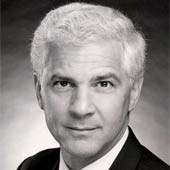Europe and the Korea Vacuum
Can Europe take the lead from the United States in helping North Korea to end its isolation?
April 2, 2001
Not just Koreans were appalled by the cold shoulder U.S. President Bush gave South Korea’s president and democracy hero, Kim Dae Jung. Current EU President Goran Persson announced on March 23 that he will soon go to the region to expedite ways to defuse the nuclear missile threat posed by the North. Persson, who is also Sweden’s prime minister, plans to visit both Korean capitals before the end of May. On that trip, he will be accompanied by the EU’s foreign policy czar, Javier Solana, and its external affairs commissioner, Chris Patten.
While the mission is a continuation of the EU policies adopted by the EU General Affairs Council last November, this is still a new role for the Europeans — and one that is long overdue. In effect, European leaders are stepping into a critical global crisis spot — and are providing the solution-oriented leadership which the new U.S. administration is apparently abdicating.
If the venture succeeds, it could raise the stature for the EU as a weighty and independent global actor. At the very least, it is yet another measure of Europe’s unease with the Bush administration’s emerging foreign policy lines.
“It’s becoming clear that the new U.S. administration wants to take a more hard-line approach toward North Korea,” said Sweden’s Foreign Minister Anna Lindh, according to London newspaper The Guardian. “That means that Europe must step in to help reduce tension between the two Koreas, not least because the outside world is so worried about North Korean missiles.”
Meanwhile, the Washington Post has reported that Kim Dae Jung told senior EU officials he came away deeply disappointed from recent talks with President Bush in Washington. He is worried that Washington might sink his “sunshine policy” of peaceful reconciliation with the North.
But President Kim is no fool: He understands the necessity of good relations with the U.S. president. Shortly after returning to Korea, he implemented a shake-up of his foreign policy team. To firm up his relations with Washington, President Kim has now appointed a new foreign minister, Han Seung Soo, who was Korea’s ambassador in Washington during Mr. Bush’s father’s presidency. But to shore up his position on the peninsula, he has turned to the EU.
Europe shouldn’t expect much appreciation from the U.S. administration for its diplomatic efforts. Beneath the bromides of alliance solidarity, Washington has a cool contempt for its allies. It doesn’t take more than a few drinks at Washington dinners to start a round of smug jokes at the allies’ expense.
Conservatives in and around the new administration refer to the allies as “feckless.” Meaning “weak, ineffective or worthless,” that is how the ascendant conservatives think the foreign policies of their European and Asian allies compare to the “new realism” the Bush team is bringing to U.S. international positions.
But where the new administration officials see resolve, others see arrogance. This is true not only of the tawdry treatment of President Kim, but in the recent rejection of the Kyoto global climate accords, plans to transplant a “contra” strategy to Iraq as a substitute for reforming the sanctions policy, and the new hostility towards Russia and China. Little genuine consultation seems to be taking place between the U.S. officials, who have been at their jobs for a matter of weeks, and their more experienced allied counterparts.
There are, of course, more balanced views. Secretary of State Colin Powell represents the pragmatist wing of the administration. He recognizes the strength of multilateral approaches and has practical experience in building effective international coalitions. His views are also closely in line with the Joint Chiefs of Staff.
Joint Chiefs Chairman General Henry Shelton recently said, “I believe it would behoove us from a military perspective to engage China to try to explore the areas where we can have cooperation.” That’s not exactly the message coming from the White House or the Secretary of Defense, but it is the dominant view among European leaders.
EU leaders would also find support for their policies in the New York-based Council on Foreign Relations. A new report from a Council task force urges the United States to pursue negotiations with North Korea and implicitly criticizes the Bush administration’s approach, noting: “The scope of North Korea’s proposal was unprecedented. The North would prohibit all exports of long-range missiles and related items in exchange for in-kind assistance in categories such as food.”
If the EU can make alliances with these elements in the United States, then European officials may be able to build a rear guard of support for their front line diplomacy. They will find sympathetic ears in the U.S. State Department, academic and professional centers, leading newspapers, and, they might be surprised to discover, many military leaders.
As they pursue their North Korean diplomatic outing, however, European emissaries can expect little but scorn from the far right in the United States. They would, in fact, do well to heed Henry V’s entreaty, who according to Shakespeare’s script opted to “imitate the action of the tiger, stiffen the sinews, conjure up the blood.”
Read previous
Humanizing Global Capitalism
March 30, 2001
